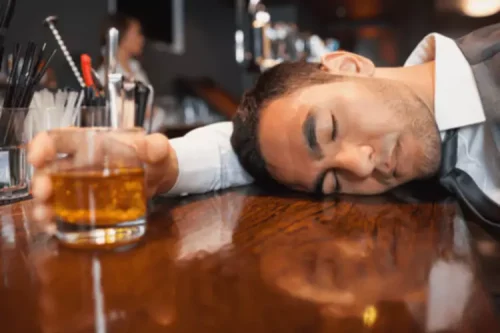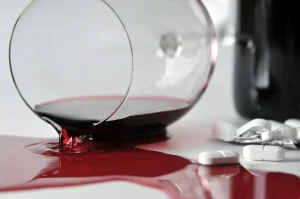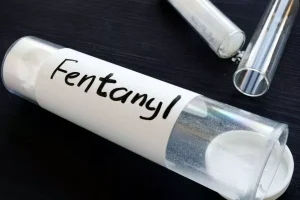
They experience intense cravings, withdrawal symptoms when attempting to stop, and an increased tolerance, requiring larger amounts to achieve the desired effect. The individual’s ability to function without the substance or behavior becomes severely impaired. Drug abuse refers to the harmful or hazardous use of psychoactive substances, including legal and illegal drugs. The World Health Organization (WHO) defines substance https://ecosoberhouse.com/article/the-abstinence-violation-effect-meaning-when-recovering/ abuse as using a substance in a harmful way. It can happen through something as common as starting a new prescription drug to manage pain, through peer pressure to try an illicit drug, or even celebrating one’s twenty-first birthday with an alcoholic beverage. Regardless of what exactly led to the first encounter, the Mayo Clinic describes several risk factors that might lead someone to have a higher risk of addiction.
What Role Does Tolerance Play in the Cycle of Addiction?
- Withdrawal symptoms are a significant part of the addiction cycle, and they can be incredibly debilitating for those trying to break free from substance abuse.
- This latter choice is made with intent of trying to fit in better with that particular group of peers.
- This process is linear and has the same progression for every person, although the duration of each step in that progression can differ greatly depending on the individual, dosage and type of drug being abused.
- Withdrawal reflects the body’s reliance on the drug to function normally and its struggle to recalibrate after the drug is removed.
- Some scientific literature describes addiction as the compulsion to use substances or participate in addictive behaviors, such as gambling, eating, and working, even when doing so causes harm.
They may compulsively lie about their drug use when questioned and are quickly agitated if their lifestyle is threatened in any way. Users, at this point, can also be so out of touch with their old life that they do not recognize how their behaviors are detrimental and the effects that it has had on their relationships. With some drugs, especially prescription medications, the individual may enter this stage through psychological dependence before a physical one can form. When this happens, the individual believes that they need the drug to be able to function like a normal person. Here, the drug commonly becomes a coping mechanism for trying times, and then extends to instances where it should not actually be necessary. For example, a patient taking pain medication may begin to over-medicate, as they perceive moderate pain as severe pain.
Stage 5: Dependence
Once a person becomes intent on finding drugs, the prefrontal cortex activates the brain’s ‘go system.’ This triggers a person to have a strong urge to seek out drugs. When a person experiences withdrawal, the reward system in the basal ganglia shuts off. It involves an intense rush of pleasure as the drugs activate the brain’s dopamine system. The addictive potential of some substances may be so strong that what seems to be an instant addiction may develop. The psychology of addiction is a complex field where the experts, by experience, seem to have the deepest level of real-world understanding. At Brookdale Addiction Recovery, we can provide you with the individualized care you deserve, through our patient-centric approach to treatment.
What Are the Physical and Mental Stages of Addiction?
You’re not just a bystander in this fight; you’re an active participant with the power to change the narrative. Psychological dependence is a crucial aspect of addiction psychology, and it plays a significant role in addictive behaviors. It refers to the strong emotional need and cravings a person experiences for a substance or behavior.

Treatment Options
Networks of neurons send signals back and forth to each other and among different parts of the brain, the spinal cord, and nerves in the rest of the body. Our free email newsletter offers guidance from top addiction specialists, inspiring sobriety stories, and practical recovery tips to help you or a loved one keep coming back and staying sober. These support groups can help reduce the sense of shame and isolation that can lead to relapse.

Dependence is another critical stage of addiction that refers to the body’s adaptation to the presence of a drug, requiring higher doses to achieve the same effects initially experienced. This escalation in dosage can further entrench the cycle of addiction, making treatment even more crucial at this stage and also necessitating medical care in order to recover. At the stage choose the correct cycle of addiction of physical dependence, drug addicts require medical care to detox from the substance, which should take place in an inpatient rehab center. With increased frequency and quantity of use, the risks to personal health and well-being escalate, often transitioning into drug abuse. As abuse becomes more severe, individuals are likely to develop physical and mental dependence.

However, for most people struggling with addiction, there are stages of substance use that lead to the person becoming addicted. There is sometimes a perception that addiction is something that either exists in a person’s character or does not. This idea can lead to a belief that a person who is struggling with addiction to a substance may have had one drink or tried an illicit drug one time and immediately became addicted. Overcoming a substance use disorder is no easy feat, but it is not impossible.
- By understanding the cycle of addiction, you’re equipped with the tools to identify the signs and patterns of substance abuse.
- While many theorists now view addiction as a disease, these theorists view the disease model of addiction as an extreme manifestation of purely biological events that rob a person of their reasoning abilities.
- Utilizing resources such as addiction support groups and counseling services can help individuals navigate the challenges they may face during the healing process.
Even after a person quits using a drug and has undergone treatment, there will always be the danger of relapse. This means, one must commit to an entire lifestyle change, in order to maintain their life of recovery. The final stage of the cycle – addiction – is marked by a loss of control, compulsive use, and continued use despite harmful consequences. But remember, relapse prevention is possible, and it’s a crucial part of the recovery process.
Stage 6: Relapse
- These changes explain the intense cravings and impaired ability to resist the drug, features that are central to addiction (Volkow et al., 2016).
- Depending on many genetic and environmental factors, some first-time users may not continue the cycle of addiction.
- Generally, in this stage, the drug is connected to social actions, such as experiencing pleasure or relaxing after a long day.
- With some drugs, especially prescription medications, the individual may enter this stage through psychological dependence before a physical one can form.
- The final stage of the addiction cycle is relapse, often occurring as the withdrawal symptoms become too overwhelming for the individual.
- For an illicit substance or a substance that has little to no legal or medical purpose such as heroin, it is considered substance abuse the first time someone uses it.
